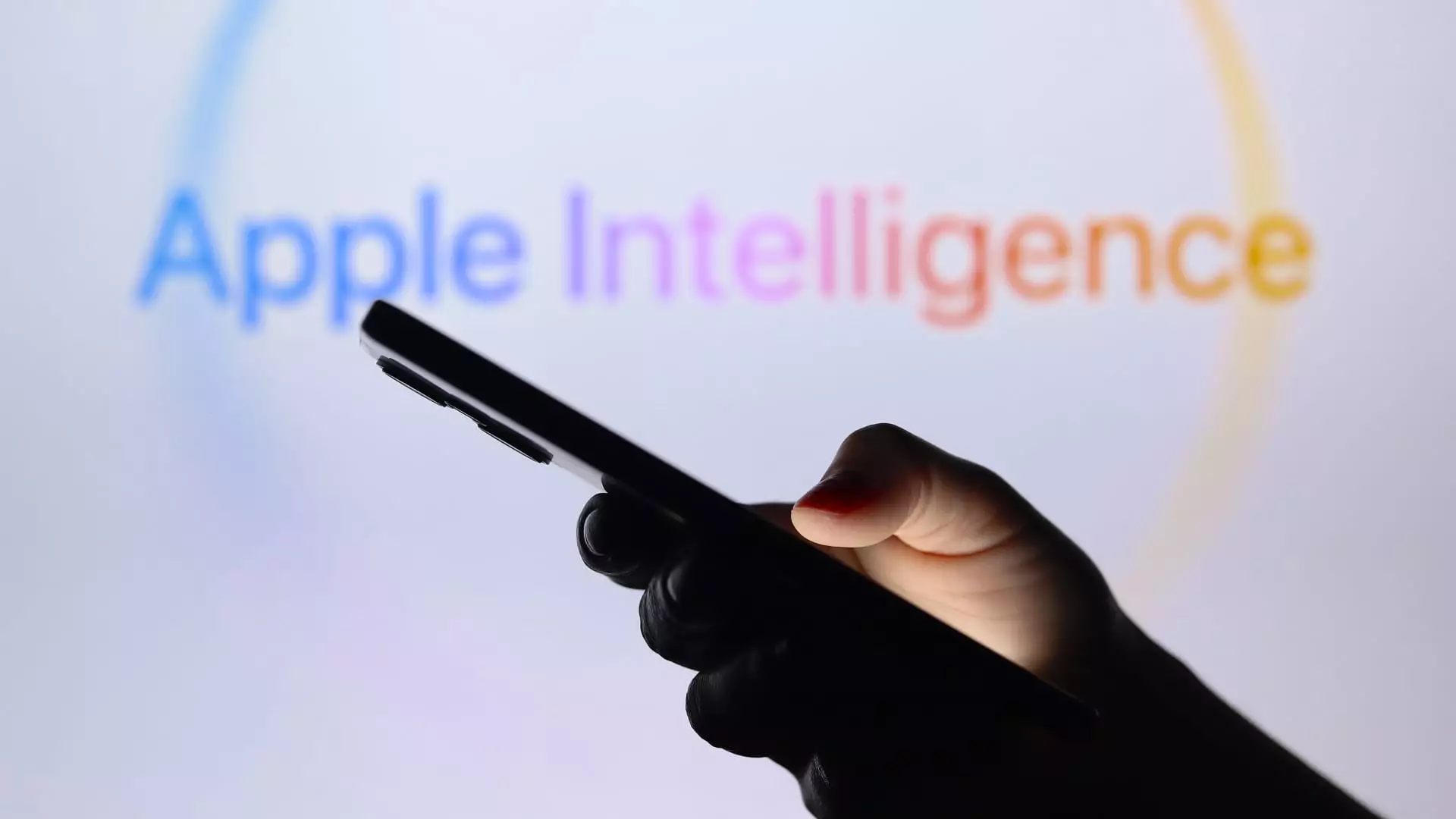As the digital landscape continues to evolve, artificial intelligence has emerged as a pivotal component among technological advancements. Companies are not merely employing AI for improved efficiency and productivity; they are also exploring innovative ways to monetize these sophisticated features. Apple’s strategic move toward integrating advanced AI capabilities, particularly its new Apple Intelligence system, signals a burgeoning trend where users might soon find themselves paying a premium for these enhancements.
Apple’s plans for Apple Intelligence have stirred excitement and speculation within the tech industry. Expected to roll out across various devices this year, Apple Intelligence promises to enhance user experience significantly. Notably, improvements are anticipated for Siri, Apple’s voice assistant, along with innovative functionalities such as automated email generation and image creation. The initial rollout, however, will be limited, with regions like Europe and China potentially being sidelined until later releases. This selective introduction raises questions about accessibility and the potential for differential pricing strategies based on regional consumer markets.
Analysts from different research firms suggest that Apple could implement a subscription fee ranging from $10 to $20 for access to these advanced AI-driven features. This model aligns with Apple’s existing Apple One subscription service, which already bundles various offerings for a flat fee. However, the introduction of a tiered subscription for AI services prompts a necessary discourse regarding user expectations. Should consumers be prepared to pay extra for capabilities that could have been seen as a standard offering in a competitive technology environment?
Neil Shah from Counterpoint Research argues that the cost of AI development is substantial, implying that user subscriptions may be a financially prudent route for Apple. While Apple has benefitted from its services division—bringing in an impressive $24.2 billion—this could indicate a broader trend in tech monetization. As tech companies increasingly transition into service-oriented models, it raises the question of how far users are willing to go in accepting subscription fees for enhanced functionalities.
The historical context of Apple’s service offerings suggests that consumers are accustomed to paying for added value. Other tech giants like OpenAI and Microsoft have already established subscription models for their advanced AI features, setting a precedent for companies looking to implement similar tactics. Apple’s ability to successfully monetize its services differentiates it from many hardware manufacturers struggling to find similar pathways for revenue growth. This disparity highlights Apple’s unique position in the technology ecosystem and its capability to create a loyal customer base willing to opt for premium feature sets.
The introduction of Apple Intelligence is not just about generating additional revenue; it’s also about enhancing customer retention. By developing an AI system that learns and adapts to individual user behaviors, Apple fosters an environment where users find it challenging to transition to other platforms. The potential for AI to become increasingly personalized reaffirms the bond between Apple and its customers.
This relationship hinges on the notion that once a user adapts to the intricacies of a proprietary AI model, moving to a different platform—such as Android—would imply a loss of that customized experience. This psychological lock-in could further solidify Apple’s market presence, making it difficult for competitors to attract users who have grown comfortable with their personalized Apple experience.
As Apple gears up to unveil its Apple Intelligence system, the dialogue surrounding the potential monetization of AI features becomes increasingly vital. The predicted subscription pricing model taps into a broader trend of software services driving revenue in a sector traditionally dominated by hardware sales. Apple’s strategic advances in personalized AI services could reshape user expectations and market dynamics, offering not just features but an ecosystem that promotes long-term customer loyalty. Whether or not consumers will embrace these changes remains to be seen, but the path forward suggests a significant shift toward valuing premium AI-driven experiences.


Leave a Reply